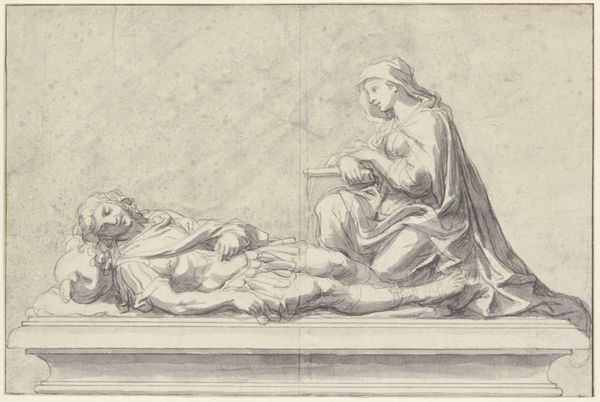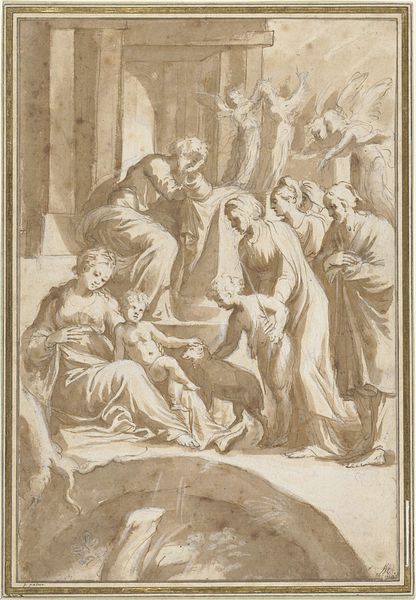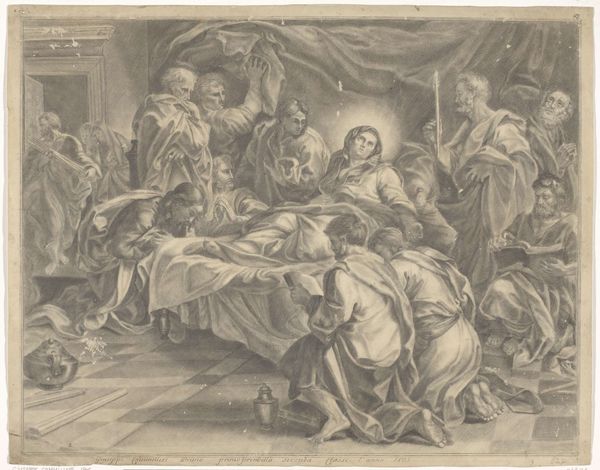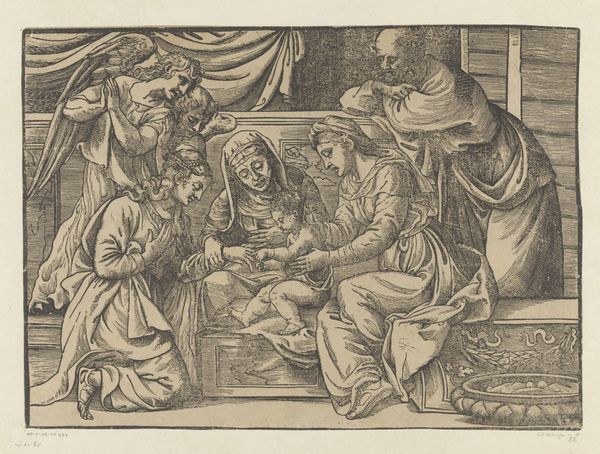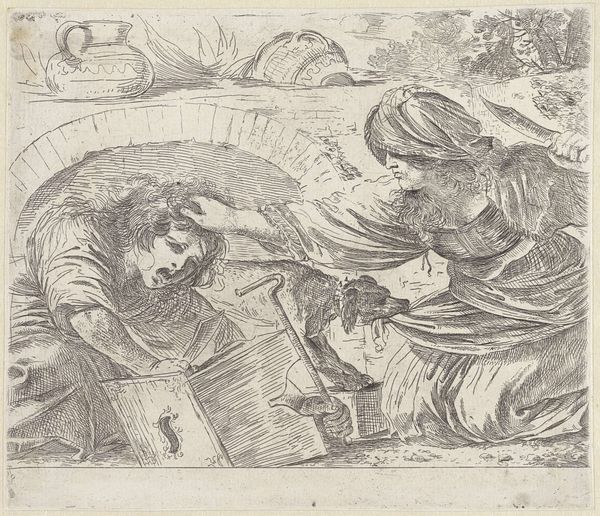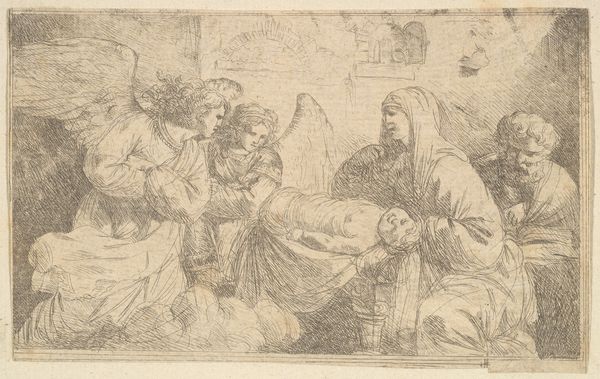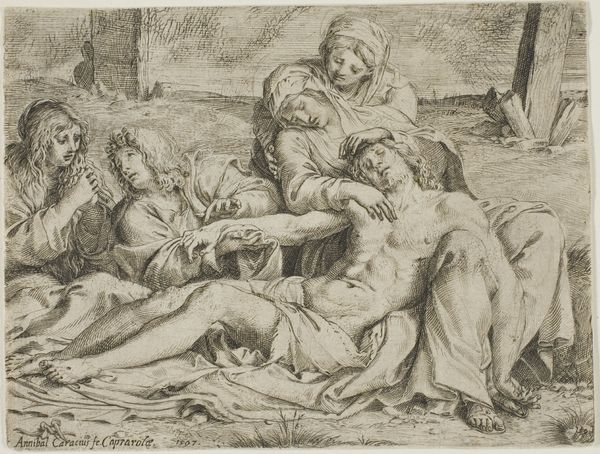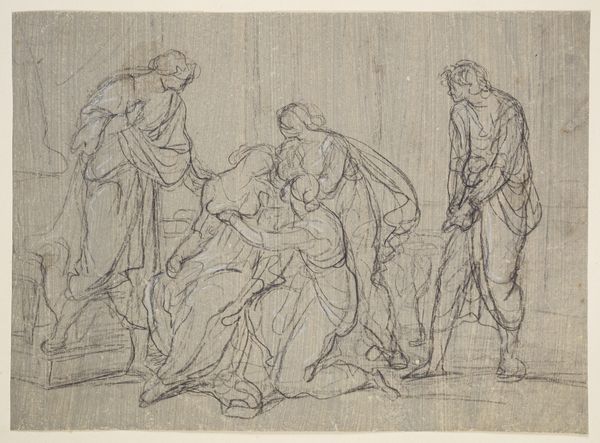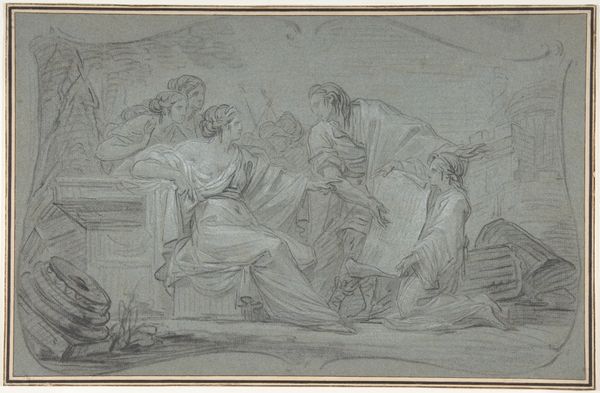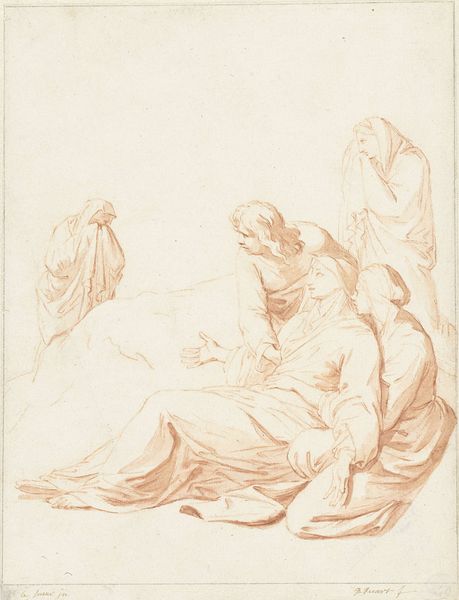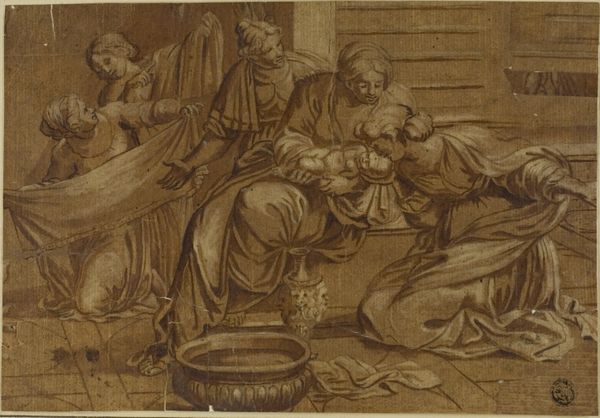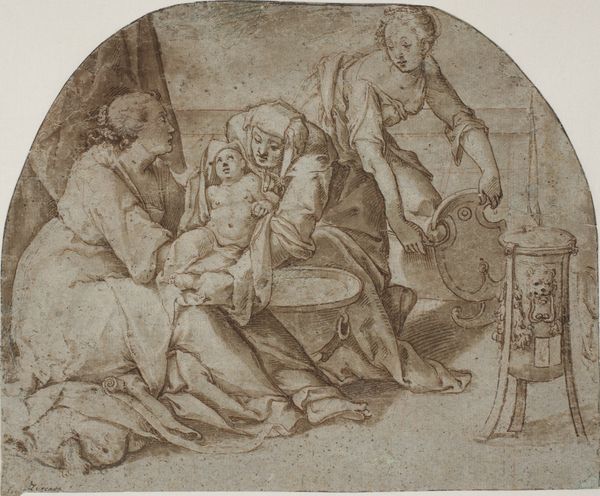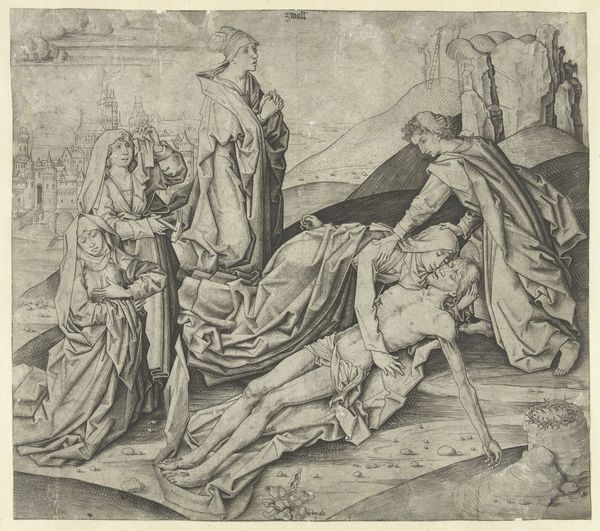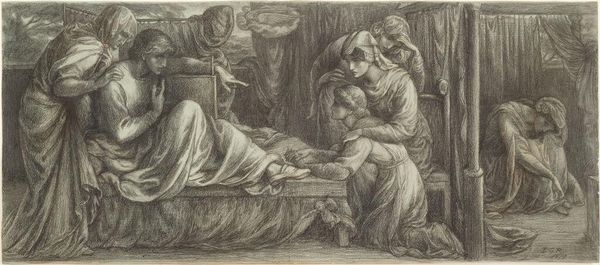
print, etching
#
narrative-art
#
baroque
# print
#
etching
#
figuration
#
pencil drawing
#
genre-painting
#
nude
Dimensions: height 141 mm, width 207 mm
Copyright: Rijks Museum: Open Domain
Curator: This etching, created sometime between 1620 and 1664, is entitled "Het toilet van de jong gehuwde" – "The Toilet of the Newly Married Woman," by Stefano della Bella. Editor: It’s surprisingly intimate, isn't it? There's this immediate sense of quiet domestic labor depicted in what must have been quite popular materials. Look at the fineness of the lines he achieves with the etching process. Curator: Yes, della Bella was celebrated for his skill in capturing detail and portraying contemporary life. His work often circulated amongst the aristocracy, shaping social norms around love and domesticity through such refined prints. The scene offers a glimpse into the private world of a newly married woman and her attendant. Consider the context of marriage in 17th-century Europe. Editor: Context indeed! The artist transforms the base materials through the means of production, layering social significance with his technical choices. Think of the labour embodied here—the artisan who painstakingly etched the plate and the individual depicted working the feet of another! Is that jewellery she's handling? Curator: Quite possibly. The jewelry may signify status or even a dowry—visual cues understood by the intended aristocratic audience. Notice the subtle indications of wealth— the fabric draping the scene—all elements elevating genre painting. The piece isn’t simply documenting a scene but also performing a specific social role. Editor: Absolutely. I can almost feel the texture and cool smoothness of that urn. This engraving performs the everyday in luxury materials which highlights the intersection of labor and display! There’s also a kind of cool distance – look at how the main figure turns her back to us. It adds an interesting element of privacy breached, wouldn’t you say? Curator: A privacy crafted for public viewing! The “toilette” scene as a genre carried many established traditions, used both to celebrate and subtly critique societal expectations around marriage and women's roles. Stefano cleverly works within these currents of taste. Editor: So well observed. It feels important to note, in closing, how Stefano’s material approach actually creates a particular experience of the domestic space it attempts to reflect. Curator: Precisely, these works acted as a mirror, not only reflecting society, but actively shaping perceptions and dictating aspirations during that time.
Comments
No comments
Be the first to comment and join the conversation on the ultimate creative platform.
